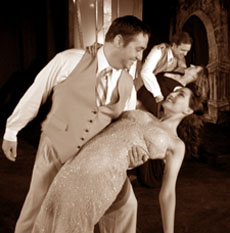|
observer |
|
|
|
|
|
OTHER LINKS |

|

|

|
GCE A/L English Literature - Made Easy - Drama - : The Merchant of Venice - by William ShakespeareAct I Scene - 3Bassanio is on the lookout for Shylock, a Jewish money lender, for a loan of three thousand ducats, depending on Antonio for settlement of the loan. Antonio, a rich merchant whose ships are bound for distant places and probably could be subject to perils at sea. Shylock hates Antonio for two reasons. Firstly he's Christian. Secondly he lends money to people minus interest. Moreover Antonio has condemned Shylock for charging "excessive interest".
To lend the money to Bassanio, Shylock introduces "a penalty clause" that if Antonio fails to repay the loan Shylock will have the right to a pound of flesh from any part of Antonio's body. In spite of Bassanio's objections Antonio assures him of the safe arrival of his ships. This scene highlights Shylock's character as "a powerful dramatic figure" in the play. It seems to be "a rewarding role" in the drama. Shakespeare's use of "asides and soliloquies" to allow his heroes, through here it is a villain, to "clear his intentions and motivations to the audience as Shylock does here" Shakespeare is "building a dramatic crisis". Antonio, comparing the money lender to "the apple rotten heart. The climax here seems to be vivid and dramatic. "Hath a dog money? Is it possible a cur can lend three thousand ducats?" Shylock rhetorically asking Bassanio "Pray tell me this. If he should break his day, what should I gain by the exaction of the forfeiture? Antonio and Shylock have completely different characters. Shylock, crafty, vengeful cunning and merciless. Antonio, a christian kind and trustworthy, depending on luck and over confident. Shylock is a character created by Shakespeare embossed with all the qualities of a villain, a Jewish money lender. His other villains Richard III or Iago try to justify their own villainous deeds while Shylock is defamed from the beginning of the play. Act 2 scene IPrince of Morocco enters amidst pomp and pageantry. Portia, Nerissa and several ladies-in-waiting. The prince arrives introducing himself as a brave suitor despite "the colour of his skin" Portia suggests to have dinner together and then "the hazard shall be made." This act is rather different from Act one. Prince Morocco, with his proud reference to his dark skin and Portia's words, "yourself renowned prince, then stood as fair. As any comer I have looked on yet For my affection" Prince Morocco is a warrior, speaking highly about his red blood could "mock the lion which roars for prey" Though a straight forward soldier Prince he's liable to fail as a suitor. Bassanio is on his way to win Portia. Act 2 scene 2 -In this scene emphasis is laid on lancelot and Gobbo, Shylock's servant. Gobbo is quite doubtful about his own decision whether to remain in Shylock's service or to find employment elsewhere and "the weight of his conscience hanging about the neck of his heart". Bassanio enters with Leonardo, talking enthusiastically of a dinner to celebrate his departure to Belmont and Bassanio advising Gratiano to "modify his wild behaviour". Commentary- This scene deals with "minor diversions and developments" with the elopement of Lorenzo and Jessica and Gobbo's transferring his services from Shylock to Bassanio. Here the role of the clown becomes as important as the role of the tragic hero. In the Elizabethan audience clowns played an important role with their routines, gestures, expressions etc. The verbal comedy" (Portia's scene) The "gimmicks" tricks to attract the attention of the audience e.g. Jesterclown Laancelot. In addition the "verbal confusion" achieves a prominent place in the play. Lancelot's directions to his father to find Shylock. "The visual and verbal confusion" mistaking words and phrases. Laancelot: Turnup on your right hand at the next turning, but at the next turning of all on your left, marry, at the very next turning turn of no hand, but turn down indirectly to the Jew's house. Thus Lancelot's clowning creates gentle humour and "teasing wit" |








